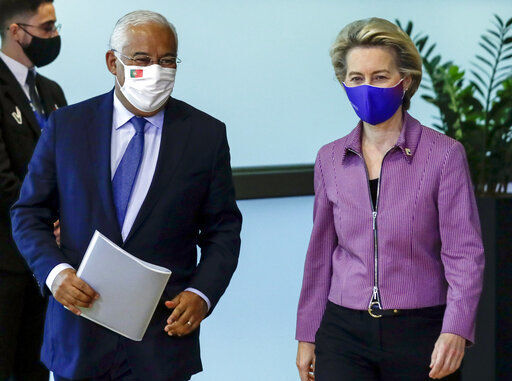BRUSSELS — It is yet another vital deadline day in the four-year torturous trek called Brexit, but Spoiler Alert!: most likely nothing will happen.
British Prime Minister Boris Johnson had set the first day of the European Union summit today as the deadline to get a trade and security deal to replace its EU membership that expired on Jan. 31. A transition period is set to come to an end on Jan. 1, forcing negotiators to work fast if any deal still is to get legislative approval and legal vetting in the little time left.
EU leaders opening their two-day summit have left the talks to the bloc’s negotiating team, but with the need for haste they are aiming to reinject vigor into negotiations that have been sluggish on the most important issues.
Beyond the call for speed, the leaders are also set to flaunt their unity, something Britain has failed to dent during years of talks on the withdrawal conditions and now on a bare trade deal with the new non-member. It is indicative that Johnson’s call that Oct. 15 would be the deadline has made precious little impact.
Johnson’s office said after a video call with EU leaders Charles Michel and Ursula von der Leyen that the prime minister “looked forward to hearing the outcome of the European (Summit) and would reflect before setting out the U.K.’s next steps.”
Few doubt that Johnson will lean toward continuing the talks for a few more weeks. The negotiations remain in a deep rut over fundamental differences on the issues of state aid, common standards of regulation and fisheries.
Both sides acknowledge that little progress was made over the past two weeks on those key issues. Johnson’s office said that the prime minister in his talks with the two EU leaders “expressed his disappointment that more progress had not been made over the past two weeks.”
A trade deal has the potential to save hundreds of thousands of jobs and not exacerbate the economic crisis brought on by the coronavirus pandemic.
Overall, the EU says Britain is trying to retain the advantages of EU membership without the commitment to play by the bloc’s rules. Britain says it is baffled it can’t get a quick deal with generous free trade concessions like Canada got a few years ago.
But EU nations like France want the access of U.K. companies to the EU market to be very strict because of the nation’s sheer proximity and the similarity in goods and service that are traded. They want to make sure British firms won’t be able to undercut their continental rivals with weaker environmental and social regulation and excessive state subsidies.
France is viewed, especially by Britain, as one of the nations most unwilling to compromise, especially on the issue of French boats’ access to British fishing waters.
Since last month, the member states have also become ardent in demanding legal guarantees on governance of any deal after Johnson introduced legislation in September that breaches the Brexit withdrawal agreement he himself signed with the EU only last year.
It left trust in the Johnson government shattered, and the European Parliament, which must approve any deal, has vowed not to approve any trade deal if the U.K. government doesn’t withdraw this legislation. Britain says it will keep the legislation, with the option to use it if necessary.


